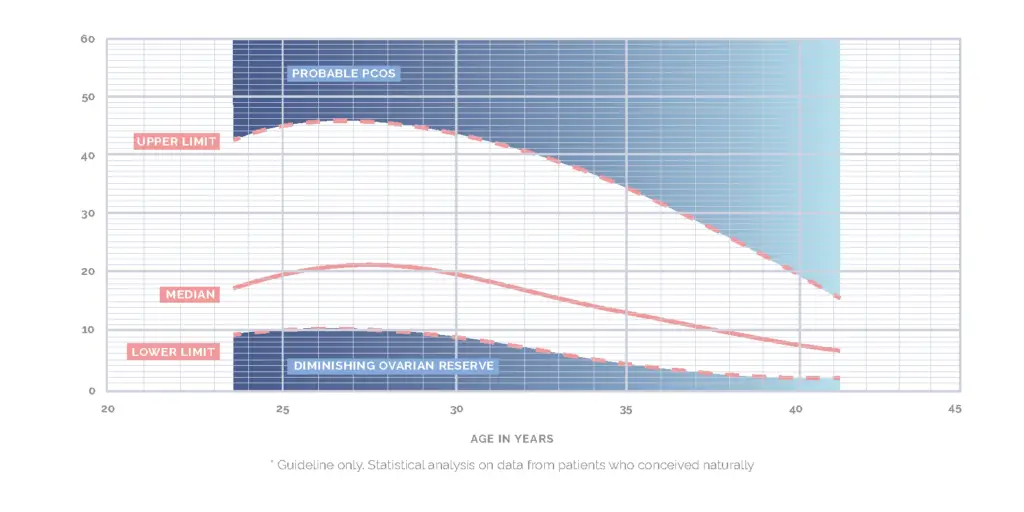When you’re born, you have a certain lifetime supply of eggs. The older you get, the more this supply slowly decreases in quality and quantity. The AMH blood test measures the how many eggs you could potentially produce at any one particular stage in your life.
Important: Whatever your AMH test score, there’s no guarantee you’ll fall pregnant. It’s only a gauge for your ovarian reserve (quantity), and it can’t tell us anything about your egg quality. Egg quality decreases with age, and there’s no current test for it.
Yes. Any heterosexual or same sex couple should see their GP first to check if their health is optimal, and then be referred to a fertility specialist like me for a discussion and an AMH test. But bear in mind that not all GPs are comfortable in the fertility space, so if yours isn’t referring you on, don’t be afraid to see another GP who might be more inclined.
The tiny cells in your developing egg sacs secrete something called the Anti-Müllerian Hormone (AMH), which has the potential to grow an egg. And when we take a sample of your blood, we can measure your AMH level, to get a good idea of your ovarian reserve: the number of eggs you have left.
Please note: Neither your menstrual cycle nor oral contraception will affect your AMH levels, so we can take your blood sample any time you like.
An AMH test could be your best option if:
You’re contemplating IVF or other fertility treatments (note: a high AMH level might mean that your body is reacting to the actual IVF medication)
I definitely take your age into account when looking at your AMH blood test score. If you have a low AMH test level, I may offer to move you onto treatments like IVF sooner than someone who has a normal or high level. But I also need to take into account the number of months or years you’ve been trying for pregnancy, any other factors in your test results, and what your preferences are as a woman at this stage in your life.
“The AMH level is a helpful tool, but it’s not the absolute reason why I’d decide whether to move you onto IVF.”
When it comes to egg freezing for IVF later, it’s best to do it before you’re 38 — because after that, your eggs are less likely to tolerate the freezing and thawing process, and therefore less likely to give you a pregnancy down the track. Age is definitely a factor, so the younger you freeze your eggs the better.
If you’re over 45, most of the discussion I’ll have with you will be whether you want to move onto donor eggs or not. Donor eggs are frequently used even with younger women, but being over 45 makes you more likely to need them.
And don’t worry, it’s very common. In fact, there are so many celebrities having babies later in life, but nobody talks about the fact it’s not their eggs. (Except for Sonia Kruger, who is very open about it.)
This chart is what we use to help us determine where you sit in AMH levels.
These are guidelines only. Statistical analysis on data from patients who conceived naturally.

Newcastle Fertility Specialists
193 Corlette St, The Junction,
Phone: 02 4908 6555
Monday – Thursday
9.30 am – 4.30 pm